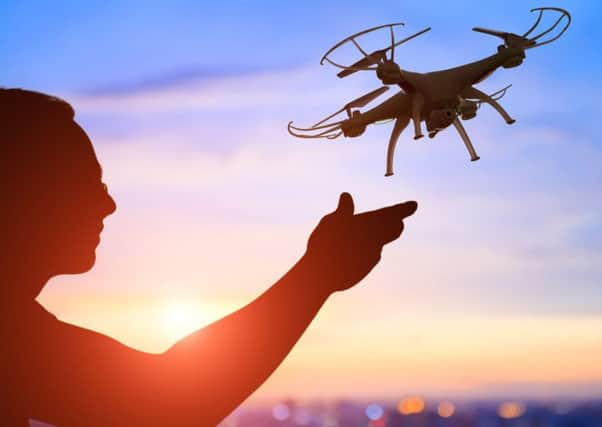Drones to protect Scotland's soft crops from fruit flies


Scientists at the University of Aberdeen are pioneering the use of drones to monitor damage by the fruit fly Drosophila suzukii, also known as the spotted wing drosophila.
This pest has spread from south-east Asia to North America and recently to Europe and the UK, affecting many commercial fruit crops including strawberries, raspberries and grapes.
Advertisement
Hide AdAdvertisement
Hide AdExperts have warned it could cause losses of up to 80 per cent of Scotland’s multi- million-pound soft fruit industry.
Early detection is crucial to preventing devastating damage to crops, but traditional monitoring is time-consuming and costly, and the fruit fly is difficult to control with insecticides.
Dr David Green, from the university’s department of geography and the environment, said the pest has spread rapidly since arriving in the UK in 2012 and has been found as far north as Dundee.
He said: “Early detection is key to prevention. However, current monitoring methods usually involve manually checking traps for signs of the fruit fly, which is very time-consuming and inefficient if you are going from trap to trap over acres of land.
“We are aiming to develop an automated system where drones fitted with cameras would fly over so-called ‘sticky traps’ which would trap the fly but in a way that allows it to be identified from the air.
“One of the main challenges of our work will be developing a method that automatically identifies the presence of the fly among other pests.
Dr Green added: “Our Dutch partners at the University of Wageningen are specialists in image processing and our aim is to develop an image-capturing and processing system that can recognise the fly and carry out an automatic count in order to determine the density of the infestation.
“From there a fast alert can be issued to growers and they can undertake the necessary action to prevent the destruction of their crop, which in many cases can amount to many thousands of pounds.
Advertisement
Hide AdAdvertisement
Hide Ad“Ultimately, our goal is to develop a system which has real value for soft fruit growers that can help protect their livelihoods.”
The project, funded by the Department for Environment, Food and Rural Affairs, also involves Dr Johannes Fahrentrapp, Zurich University of Applied Sciences, Switzerland, and Dr Lammert Kooistra, University of Wageningen.